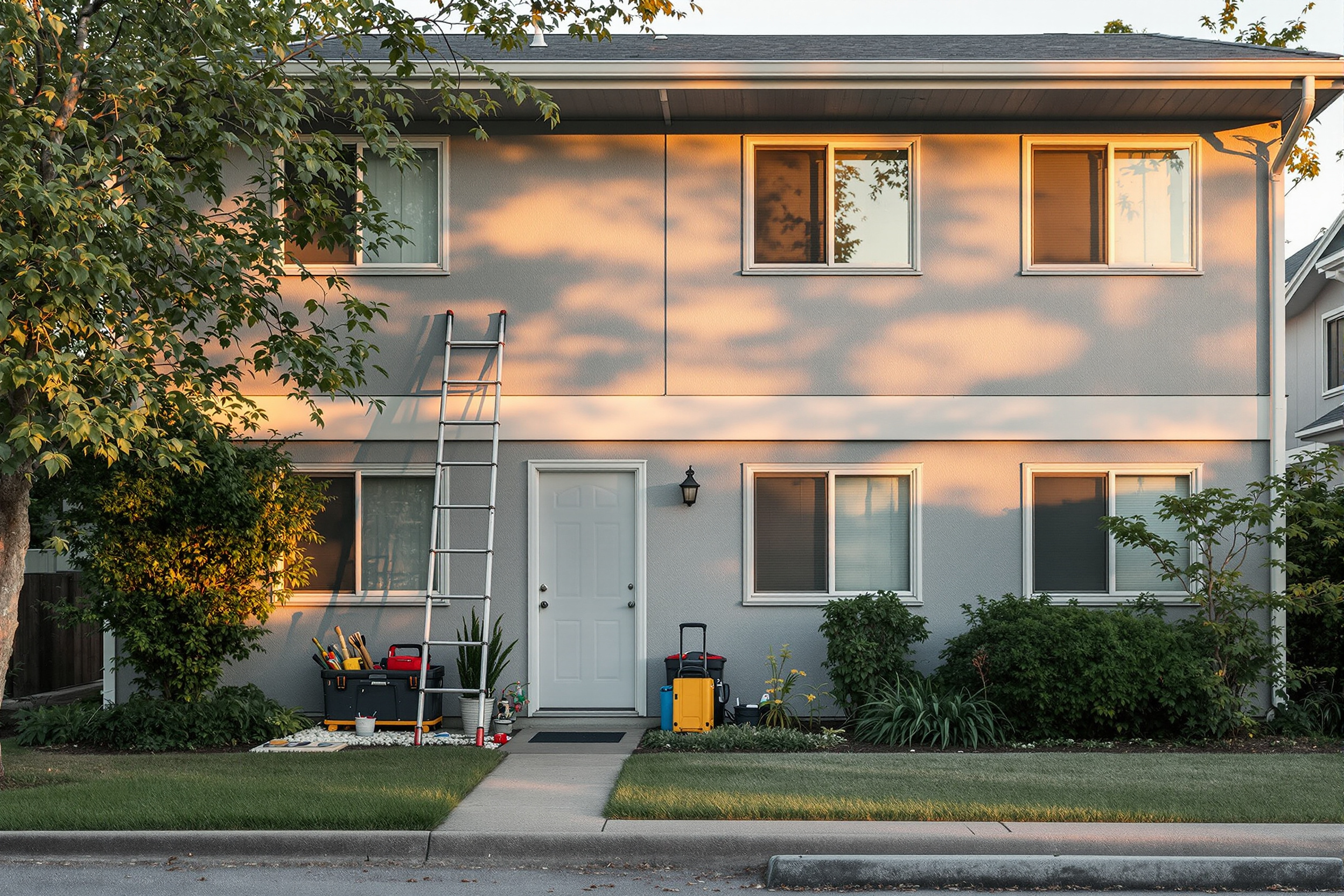One of the most common and concerning issues landlords face is when a tenant doesn’t pay rent on time. According to the Joint Center for Housing Studies (JCHS) of Harvard University, missed rent payments are among the major concerns for landlords.
Whether due to financial hardship or a renter’s negligence, handling tenants who fail to pay rent can be difficult and stressful. In this article, you’ll learn helpful strategies for effectively managing a tenant not paying rent to minimize your stress and ensure tenant accountability.
When Is the Rent Late?
Typically, rent is considered late when it is delivered past the due date outlined in a lease agreement. However, certain circumstances may cause a delay and make it seem as though the rent is late when it is not:
- If the first of the month falls on a weekend or holiday, some financial institutions don't process payments until the following business day. So, even though a tenant made their rent payment on time, the funds may not be immediately available in your account.
- Mail delivery times can also affect whether rent may be late. If a tenant mails their rent payment, but it doesn't arrive by the first of the month — due to delays or other issues with the post office — then you won't receive the payment until after the first.
- Many tenants may pay rent electronically through an online portal or bank transfer. In these cases, a processing time can often delay payments reaching the landlord's account. These delays could cause a payment to look like it arrived after the due date, even though it was sent on time.
Rent Grace Period: Pros and Cons
One strategy landlords often employ to give tenants more time to make rent payments is by offering a "grace period." A grace period enables a tenant to pay without late fees for a short amount of time. For example, landlords may offer a three-day grace period in which tenants can pay rent up to three days after the original due date without incurring any charges.
Pros
A grace period can help prevent disputes and legal action by giving tenants more time to pay their rent without fear of eviction or loss of deposit. It also removes the stress of penalizing late rental payments immediately, allowing landlords to maintain good relationships with their tenants by being understanding and flexible when dealing with financial hardship.
Cons
On the other hand, offering a grace period can create more work for the landlord, as they will have to track all rental payments. If rent is late, landlords may need to complete additional paperwork and communications to ensure payment.
Also, landlords should consider what kind of message they convey to their tenants by offering a rent grace period. If not handled properly, it could lead to tenants relying on this leniency, ultimately causing landlords more grief when dealing with future late payments.
.jpeg)
Options for Handling a Late-Paying Tenant
If you're a landlord who has experienced non-payment of rent from a tenant, you know how much of a headache it can be. That’s why it’s essential to be aware of the best practices and options available when this happens so you don't end up in an even more difficult situation.
Here are some tips on handling late-paying tenants:
- Talk to your tenant. If possible, and without compromising your safety, your first step should be to reach out to the tenant. Speaking with them directly can help get everyone on the same page and allow you to propose an agreement about payment arrangements.
- Send an official late-rent notice. If talking directly to the tenant isn't sufficient or feasible, issuing a rent collection letter is a good next step. This official document outlines the past-due rent owed, any additional costs incurred due to late payments, and the consequences of not paying rent in full.
- Consider negotiation. Depending on the situation, it may help to negotiate a payment plan with your tenant. That means discussing and agreeing on terms regarding when and how much the tenant can pay back over time, then putting the agreement in writing.
- Seek legal advice. If all else fails, seeking legal advice from an experienced attorney or property manager may be necessary. Do this before taking additional steps, such as filing for eviction or repossessing property, to ensure you follow the correct procedures for your jurisdiction.
- File for eviction. Depending on your state and local landlord-tenant laws, filing for eviction may be an option if your tenant is still not paying rent. Beginning eviction proceedings should only be done after all other options have been exhausted and the tenant has failed to comply with any agreements made.
Is Unpaid Rent Covered by Landlord Insurance?
Most landlord insurance policies don’t specifically cover unpaid rent. However, landlords can get rent guarantee insurance at extra cost. Rent guarantee insurance is a type of insurance policy for landlords that covers the rent when it is not paid by tenants. Unlike most insurance policies that cover rent that is missed out on because of external factors like fires, a rental guarantee insurance policy works when rent is not paid because the tenant stops paying.
Landlord insurance typically provides coverage for other issues, such as:
- Protection from damage caused by perils such as fire and windstorms. Search the Obie risk map to learn about the natural risks in your area and be prepared with the right insurance for your rental property.
- Liability protection from tenants or visitors who get hurt on the rental property
- Coverage for legal fees incurred if a tenant sues
- Personal property coverage for personal belongings supplied by the landlord to tenants that become damaged while they occupy your rental
As with any insurance policy, read the fine print to understand exactly what your landlord insurance covers—from unpaid rent to other liabilities.
You should also consult a qualified insurance provider like Obie to ensure you have the best coverage for your specific rental needs. With the right guidance, your landlord insurance policy can protect you from financial loss due to unpaid rent and other liabilities associated with being a landlord.
6 Tips for Getting Tenants to Pay on Time
Keeping your tenants up-to-date on their rent payments can pose a challenge for any landlord.
To help, here are six tips you can use to get your tenants to pay rent on time. From establishing clear tenancy expectations upfront to offering incentives, these tips can help keep you and your tenant aligned so you get paid on time each month.
- Have an open line of communication with your tenants. Let your tenants know they can contact you if they have trouble making payments. This way, you can work together to develop solutions.
- Establish clear expectations from the start. Ensure your lease agreement states when to pay rent, how much to pay, and any late fees or additional charges associated with delinquent payments.
- Offer incentives for tenants who pay rent on time. These incentives could include discounts or rewards.
- Utilize online payment solutions. This option makes it easier for tenants to pay their rent on time.
- Take a firm stance when dealing with late payments. If a tenant is not paying rent in full and on time, start the eviction process as soon as you’ve exhausted other communication methods. Be sure you do this in accordance with local laws and regulations.
- Prioritize working with a collection agency. A collection agency can help you recover some of your losses if the tenant still owes money after leaving the premises, such as unpaid rent and other fees associated with late rent payments or evictions.
Final Thoughts
Maintaining a good relationship with your tenants important—especially when it comes to collecting late rent payments. Once you notice the rent is late, communicate expectations with your tenants in a professional and consistent manner.
By following these tips, you'll be better prepared to manage tenants who aren’t paying rent on time and ensure you receive the rent due each month.







